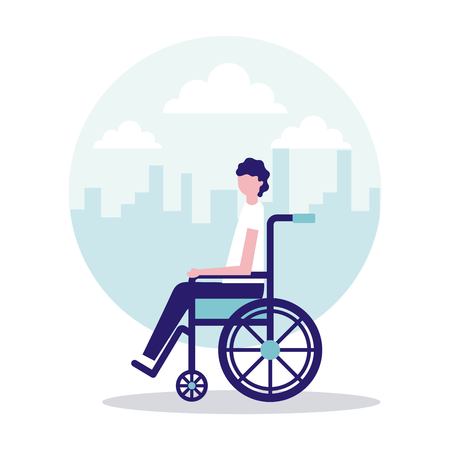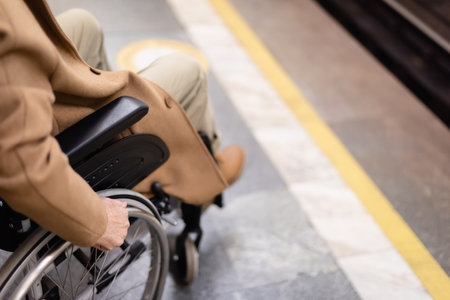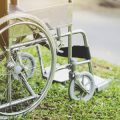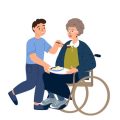Introduction: Facing Recovery the British Way
Undergoing surgery is a daunting experience no matter where you are in the world, but here in the UK, recovery comes with its own set of unique challenges and cultural nuances. As the anaesthetic wears off and reality sets in, many British patients find themselves wrestling with a complex mixture of relief, anxiety, and uncertainty about what lies ahead. The familiar NHS blue curtains, the gentle banter between nurses, and the reassuring cups of tea are all part of a distinctly British post-operative environment. Yet beneath the surface, patients often grapple with questions: How long will it take to get back on my feet? Will I be able to return to work or enjoy my usual walks on the moors? This article brings together real-life stories from across Britain, sharing honest reflections and hard-won lessons from those who have journeyed through post-op rehabilitation. Their experiences shed light on both the practical realities and emotional highs and lows that come with recovery—reminding us all that every step forward is shaped by our unique healthcare system, community support, and a good dose of British resilience.
2. The NHS Experience: Initial Steps After Surgery
For many British patients, the journey of post-operative rehabilitation begins the moment they leave the theatre and enter recovery. The National Health Service (NHS) has a well-structured pathway to guide patients from hospital discharge to their first physiotherapy sessions. Here, we share real stories from individuals across the UK, highlighting both the systematic approach and personal emotions experienced during these crucial early days.
Leaving Hospital: The Discharge Process
Most patients recount that the discharge process is meticulously organised yet can feel overwhelming. NHS staff provide leaflets outlining what to expect over the next few weeks—everything from medication schedules to wound care instructions. For instance, Mrs. Patel from Manchester recalls her nurse patiently explaining each step, while also arranging for district nurses to visit her at home. In many cases, a family member or friend is required to be present before discharge, ensuring someone is available to assist once home.
Key Elements of NHS Discharge Protocol
| Step | Description |
|---|---|
| Pain Management Plan | Clear instructions on pain relief, including prescribed medications and over-the-counter options. |
| Follow-up Appointments | Dates for GP or specialist reviews, often booked before leaving hospital. |
| Community Support Contact | Numbers for NHS helplines and local support teams in case of complications. |
| Home Adaptations Advice | Guidance on mobility aids or home modifications if necessary. |
The First Steps at Home: Navigating Support Systems
The reality of being back home hits hard for many. Mr. Thompson from Bristol describes feeling both relieved and anxious—grateful for familiar surroundings but suddenly responsible for his own recovery. Fortunately, the NHS offers robust support: community physiotherapists often make initial contact within days, and district nurses check in on wound care. Many patients note that having access to a 24-hour helpline provides peace of mind during those first uncertain nights.
Personal Reflection: Facing Uncertainty with British Resilience
A recurring theme in patient stories is the quintessentially British approach—keep calm and carry on, even when things feel daunting. There’s a sense of camaraderie with NHS staff and fellow patients alike, whether it’s sharing tips in waiting rooms or exchanging reassurance during follow-up calls. As one Londoner put it, “The system isn’t perfect, but you really do feel looked after when it matters most.” This blend of structured protocol and genuine human connection defines the early stages of rehabilitation for patients across the UK.

3. Bumps in the Road: Overcoming Setbacks
Recovery is rarely a straight line, and for many British patients, post-operative rehabilitation comes with its fair share of ups and downs. Jane, a retired schoolteacher from Manchester, recalls how her knee replacement journey was anything but smooth sailing. “I thought I’d be back to rambling in the Peaks within weeks,” she jokes, “but my body had other ideas.” When complications arose, Jane leaned into her trademark dry wit: “If patience was an Olympic sport, I’d have won gold by now.” This sense of humour, coupled with classic British grit, helped her persevere through physiotherapy sessions that often felt endless.
Similarly, Tom, a young rugby enthusiast from Bristol, found himself frustrated by slow progress after shoulder surgery. He admits to moments of doubt and even self-pity but highlights how the support of his mates—and their relentless banter—kept his spirits afloat. “There’s nothing like your friends taking the mickey out of you to stop you feeling sorry for yourself,” he laughs. By embracing setbacks as part of the process and refusing to let pride get in the way of asking for help, Tom embodies the resilience so often seen in these real-life stories.
From Londoners navigating packed public transport on crutches to pensioners finding ingenious ways to adapt at home, these accounts reveal more than just physical healing; they show the importance of patience, self-deprecation, and sheer determination. As one patient put it, “We Brits might grumble about our lot, but we always crack on.” These tales remind us that overcoming setbacks isn’t just about medical recovery—it’s about holding onto hope and finding laughter in the most unexpected moments.
4. Support Circles: Family, Friends, and Community
One of the most striking themes from British patients’ real-life stories is the vital role played by support networks during post-operative rehabilitation. In the UK, recovery is rarely a solo journey—it’s woven into the fabric of daily life with the help of family, friends, and community groups. Patients consistently share how encouragement from loved ones and local peers becomes a pillar of strength through challenging times.
The British Way: A Sense of Togetherness
There’s something uniquely British about rallying together in tough moments. Whether it’s a partner helping with daily exercises or neighbours popping round to check in, the sense of community is palpable. Many patients note that even small gestures—like friends offering a lift to physio appointments or dropping off groceries—make an enormous difference in morale and motivation.
Peer Support and Local Groups
Across towns and villages, peer-led support groups are a lifeline for many. From hospital-run coffee mornings to charity-organised walking clubs, these gatherings foster camaraderie and shared understanding. Here’s a snapshot of how different support circles contribute:
| Support Source | Role in Rehabilitation | Typical British Touch |
|---|---|---|
| Family | Daily encouragement, assistance with mobility, emotional reassurance | Cooking classic comfort foods like shepherd’s pie after surgery |
| Friends | Providing transport, keeping spirits high, celebrating small victories | Catching up over a ‘cuppa’ after rehab sessions |
| Community Groups | Sharing experiences, practical advice, peer motivation | Weekly meetups at the local village hall or park café |
A ‘Cuppa’ as Therapy
No account of British rehabilitation would be complete without mentioning the comforting ritual of sharing tea. Many patients describe how post-session chats over a steaming mug become just as therapeutic as the rehab itself. This simple tradition offers warmth, normality, and belonging—a reminder that even on difficult days, no one has to go it alone.
5. Getting Back to British Life
For many British patients, returning to daily routines after surgery is a journey filled with both small victories and unexpected hurdles. The road to normality often starts with the simple act of catching the Tube again or managing a bus ride during rush hour. Navigating crowded platforms at King’s Cross or balancing on a double-decker can be daunting post-operation, but for many, these moments mark significant milestones in regaining independence.
Reintegration also means reconnecting with community staples—the local pub, the corner chippy, or even tending to an allotment on a brisk Saturday morning. Some patients share how their first visit back to their favourite pub was met with cheers from familiar faces behind the bar, while others speak candidly about the frustration of being unable to stand comfortably through a full football match at the stadium. These everyday experiences, so woven into British life, become both goals and tests of progress.
Honest reflections reveal that triumphs are often found in the details: mastering stairs at the tube station without assistance, carrying a pint without spilling it, or digging up potatoes again after months away from the soil. Yet, challenges persist—fatigue setting in faster than expected, awkward stares when using mobility aids, or feeling left out during spontaneous gatherings.
Patients emphasise the importance of patience and humour in these moments. One South Londoner described laughing off her slow pace as she held up a queue at Greggs, while another shared how his allotment neighbours rallied around him, offering cups of tea and lending a hand until he could dig in himself once more.
Ultimately, getting back to British life is less about returning to ‘how things were’ and more about discovering new rhythms and ways of belonging. It’s a testament to resilience—and sometimes, to the unspoken camaraderie found among fellow commuters or regulars down at the local.
6. Advice for Fellow Brits
The patients who have walked the post-operative rehabilitation path across the UK know it’s not all plain sailing. Their heartfelt takeaways and practical tips can make a real difference for anyone just starting out on this journey. One recurring message is the classic British spirit of “getting on with it”—acknowledging the challenge but facing it head-on, day by day.
Embrace the NHS Support
Many shared that making the most of NHS services is crucial. Patients encourage others not to hesitate in reaching out to physiotherapists, occupational therapists, and support groups provided by the NHS. “Don’t be afraid to ask questions or request additional help if you feel stuck,” advises Tom from Manchester, who credits his steady progress to regular check-ins with his rehab team.
Stay Consistent, Even on Rainy Days
Consistency was another key theme—whether it’s doing prescribed exercises at home or attending follow-up appointments, sticking to your rehab plan matters. As Liz from Bristol puts it, “Even when motivation dips, especially during those dreary winter mornings, keep going. It pays off in the end.”
The Power of Community and Small Wins
Several patients highlighted the importance of community—connecting with others on a similar journey through local NHS support groups or even online forums. Celebrating small milestones, like regaining mobility or managing stairs independently, helps maintain morale. “Give yourself credit for every bit of progress,” says Aisha from Birmingham. “Every little victory adds up.”
Look After Your Mind as Well as Your Body
Mental wellbeing was mentioned time and again. Patients recommend taking care of your emotional health: chatting with friends, keeping up with hobbies where possible, and being honest about struggles. “It’s okay not to feel okay sometimes—just don’t bottle it up,” shares John from Leeds.
Final Words: Keep Calm and Carry On
The stories make it clear that while post-operative rehabilitation isn’t easy, you’re not alone. By tapping into NHS resources, maintaining a determined attitude, and leaning on both professionals and fellow patients for support, recovery becomes a shared British endeavour—one marked by resilience, humour, and hope.
7. Conclusion: Moving Forward with Newfound Strength
As we reflect on the remarkable journeys shared by British patients navigating post-operative rehabilitation, it’s clear that recovery is never a straight path. Each story has highlighted not only the practical challenges of physiotherapy, adapting to new routines, or overcoming setbacks, but also the quiet victories—taking those first steps unaided, climbing the stairs again, or simply managing daily tasks with less discomfort. These small wins deserve celebration, as they are the foundation upon which full recovery is built.
The British spirit shines through in these real-life accounts: a blend of understated optimism and pragmatic acceptance. There’s no sugar-coating the hard days or pretending progress comes easily; instead, there is pride in perseverance and a wry humour about the ups and downs along the way. Whether it was a cup of tea after physio or a friendly chat with NHS staff, these moments remind us that support comes in many forms.
Looking ahead, it’s important to recognise that rehabilitation doesn’t end when hospital appointments do. It’s an ongoing process—one where determination is paired with patience. By sharing their stories, our contributors hope to encourage others embarking on similar journeys: take each day as it comes, acknowledge your achievements, and don’t be afraid to ask for help when you need it.
As we move forward together, let’s keep hold of that trademark British resilience—finding strength not just in grand milestones but in every small step towards independence and wellbeing. The road may be long, but with honesty, humour, and community spirit, there’s every reason to face the future with cautious optimism and newfound confidence.


